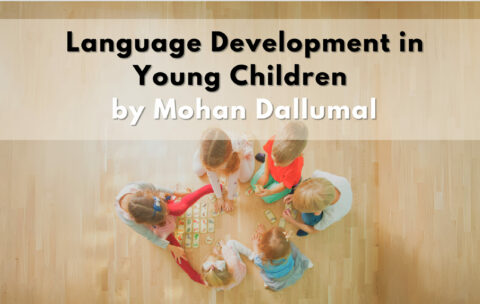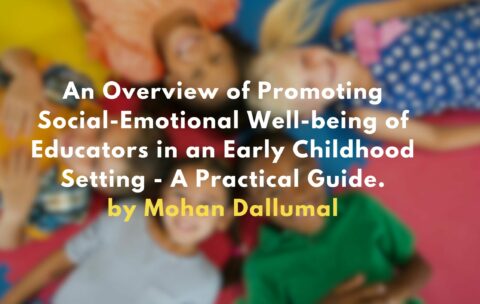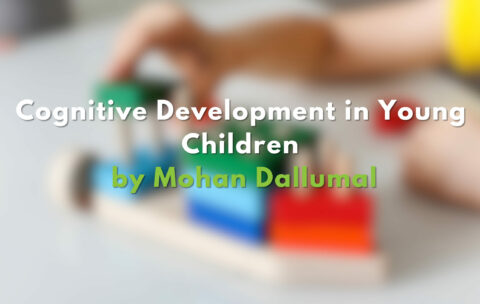Child Growth and Development by Mohan Dallumal (Course 6)
Course 6: Language Development in Young Children Embark on a …
What you'll learn
Early Identification of Challenges:
• Understanding language development helps identify potential challenges or delays in a child's communication skills. Early intervention can then be initiated to address these issues and provide appropriate support.
Effective Communication Strategies:
• Caregivers and educators with knowledge about language development can employ effective communication strategies catering to the child's developmental stage. This facilitates clearer communication, reducing frustration for both adults and children.
Enhanced Educational Support:
• Educators can tailor teaching methods and materials to align with language development stages, ensuring that learning activities are age-appropriate. This personalised approach enhances the child's engagement and comprehension in educational settings.
Promotion of Literacy Skills:
• Understanding language development is fundamental to promoting literacy skills. Caregivers can engage in activities such as reading aloud, storytelling, and language-rich interactions that foster a love for language and lay the groundwork for future literacy success.
JPNPP Series: An Overview of Promoting Social-Emotional Well-Being of Educators in an Early Childhood Setting – A Practical Guide (Part 4) by Mohan Dallumal
Promoting the social-emotional well-being of educators in early childhood settings …
What you'll learn
Positive Role Modeling: Educators prioritising their social-emotional well-being serve as positive role models for young children. By demonstrating healthy coping mechanisms, emotional regulation skills, and positive interpersonal relationships, educators help children develop similar behaviours.
Improved Classroom Environment: Educators with strong social-emotional well-being create a more positive and supportive classroom environment. This environment encourages trust, empathy, and open student communication, leading to better collaboration and learning outcomes.
Enhanced Student-Teacher Relationships: Educators who understand the importance of their social-emotional well-being are better equipped to build strong relationships with their students. These relationships are foundational for effective teaching and learning, fostering students' sense of belonging and security.
Reduced Burnout and Turnover: Prioritising social-emotional well-being helps prevent burnout and turnover among educators. By managing stress, maintaining work-life balance, and seeking support, educators can sustain their passion for teaching and remain committed to their profession in the long term.
Optimised Professional Growth: Understanding the importance of social-emotional well-being supports educators' ongoing professional growth. By engaging in self-reflection, seeking professional development opportunities, and fostering a supportive network, educators continuously improve their teaching practices and contribute to their success and that of their students.
JPNPP Series: An Overview of Promoting Social-Emotional Well-Being of Educators in an Early Childhood Setting – A Practical Guide (Part 3) by Mohan Dallumal
Promoting the social-emotional well-being of educators in early childhood settings …
What you'll learn
Positive Role Modeling: Educators prioritising their social-emotional well-being serve as positive role models for young children. By demonstrating healthy coping mechanisms, emotional regulation skills, and positive interpersonal relationships, educators help children develop similar behaviours.
Improved Classroom Environment: Educators with strong social-emotional well-being create a more positive and supportive classroom environment. This environment encourages trust, empathy, and open student communication, leading to better collaboration and learning outcomes.
Enhanced Student-Teacher Relationships: Educators who understand the importance of their social-emotional well-being are better equipped to build strong relationships with their students. These relationships are foundational for effective teaching and learning, fostering students' sense of belonging and security.
Reduced Burnout and Turnover: Prioritising social-emotional well-being helps prevent burnout and turnover among educators. By managing stress, maintaining work-life balance, and seeking support, educators can sustain their passion for teaching and remain committed to their profession in the long term.
Optimised Professional Growth: Understanding the importance of social-emotional well-being supports educators' ongoing professional growth. By engaging in self-reflection, seeking professional development opportunities, and fostering a supportive network, educators continuously improve their teaching practices and contribute to their success and that of their students.
JPNPP Series: An Overview of Promoting Social-Emotional Well-Being of Educators in an Early Childhood Setting – A Practical Guide (Part 2) by Mohan Dallumal
Promoting the social-emotional well-being of educators in early childhood settings …
What you'll learn
Positive Role Modeling: Educators prioritising their social-emotional well-being serve as positive role models for young children. By demonstrating healthy coping mechanisms, emotional regulation skills, and positive interpersonal relationships, educators help children develop similar behaviours.
Improved Classroom Environment: Educators with strong social-emotional well-being create a more positive and supportive classroom environment. This environment encourages trust, empathy, and open student communication, leading to better collaboration and learning outcomes.
Enhanced Student-Teacher Relationships: Educators who understand the importance of their social-emotional well-being are better equipped to build strong relationships with their students. These relationships are foundational for effective teaching and learning, fostering students' sense of belonging and security.
Reduced Burnout and Turnover: Prioritising social-emotional well-being helps prevent burnout and turnover among educators. By managing stress, maintaining work-life balance, and seeking support, educators can sustain their passion for teaching and remain committed to their profession in the long term.
Optimised Professional Growth: Understanding the importance of social-emotional well-being supports educators' ongoing professional growth. By engaging in self-reflection, seeking professional development opportunities, and fostering a supportive network, educators continuously improve their teaching practices and contribute to their success and that of their students.
JPNPP Series: An Overview of Promoting Social-Emotional Well-Being of Educators in an Early Childhood Setting – A Practical Guide (Part 1) by Mohan Dallumal
Promoting the social-emotional well-being of educators in early childhood settings …
What you'll learn
Positive Role Modeling: Educators prioritising their social-emotional well-being serve as positive role models for young children. By demonstrating healthy coping mechanisms, emotional regulation skills, and positive interpersonal relationships, educators help children develop similar behaviours.
Improved Classroom Environment: Educators with strong social-emotional well-being create a more positive and supportive classroom environment. This environment encourages trust, empathy, and open student communication, leading to better collaboration and learning outcomes.
Enhanced Student-Teacher Relationships: Educators who understand the importance of their social-emotional well-being are better equipped to build strong relationships with their students. These relationships are foundational for effective teaching and learning, fostering students' sense of belonging and security.
Reduced Burnout and Turnover: Prioritising social-emotional well-being helps prevent burnout and turnover among educators. By managing stress, maintaining work-life balance, and seeking support, educators can sustain their passion for teaching and remain committed to their profession in the long term.
Optimised Professional Growth: Understanding the importance of social-emotional well-being supports educators' ongoing professional growth. By engaging in self-reflection, seeking professional development opportunities, and fostering a supportive network, educators continuously improve their teaching practices and contribute to their success and that of their students.
Child Growth and Development by Mohan Dallumal (Course 3)
Course 3: Cognitive Development in Young Children Embark on a …
What you'll learn
Tailored Learning Experiences:
• Knowledge of cognitive development allows for the customisation of educational approaches, ensuring that teaching strategies align with a child's cognitive abilities and developmental stage.
Early Intervention for Challenges:
• Recognition of cognitive milestones enables early identification of potential developmental challenges, allowing timely intervention and support to address specific needs.
Effective Communication:
• Understanding cognitive processes helps adults communicate in age-appropriate and comprehendible ways for young children, fostering clear and meaningful interactions.
Promotion of Critical Thinking:
• Awareness of cognitive development supports the cultivation of critical thinking skills, problem-solving abilities, and logical reasoning, which are essential for academic success and lifelong learning.
Optimal Social and Emotional Support:
• Cognition is interconnected with social and emotional development. Knowledge of cognitive milestones allows caregivers to effectively support emotional regulation and healthy social interactions, contributing to overall well-being.
JPNPP Series: Parent-Teacher Conference by Mohan Dallumal Part 6
The parent-teacher conferences are vital for parents to stay informed …
What you'll learn
Learn to establish an open line of communication with parents, which will help to understand and support children greatly.
Establish a platform to share observations and insights about children's progress and behaviour and exchange feedback from parents.
Establish a stronger relationship with children's families to create a supportive learning environment.
JPNPP Series: Parent-Teacher Conference by Mohan Dallumal Part 5
The parent-teacher conferences are vital for parents to stay informed …
What you'll learn
Learn to establish an open line of communication with parents, which will help to understand and support children greatly.
Establish a platform to share observations and insights about children's progress and behaviour and exchange feedback from parents.
Establish a stronger relationship with children's families to create a supportive learning environment.





